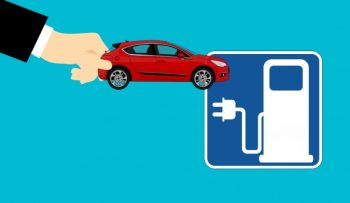Many of us are passionate about electric cars: after all, even if they cost a lot (they say, for now), they make us feel very ecological friends of Greta. Then, since they cost so much, they are just as luxurious as they are to transform them into a status symbol: of the series, “I’m an ecologist, not a poor guy”, we could say an ecological chic.
Economic advantages of electric cars
But clarissa.it never leaves you in peace with your conscience, although so well trained by the society of consumption and well-being. Let’s take an example: in a recent 360 km road test, the 2.5 tonne heavy Audi e-tron electric SUV consumed 19 kWh / 100 km on average.
Well, even if it is true that the worst result among the top-of-the-range electric cars tested by a specialized magazine, the electric charge needed to cover these 360 kilometers has cost just 14.77 euros on the domestic bill.
An expense that corresponds to the cost, for the same distance, of the supply needed for a Renault Twingo utility vehicle, which weighs only 990 kg.
So, if we really want to be ecologists, should we ask ourselves the reason for this enormous economic advantage in favor of electricity in motor vehicles?
As we have seen, it is not justified by efficiency: in the sense that the total efficiency value in the electric car production/use cycle is equal, if not less, to the efficiency of a small, latest-generation endothermic engine.
Why, then, does the electric spend less?
Because ordinary fuel is burdened with taxes.
So, in fact, the great majority of people of low-middle income, who buy and use combustion cars of the level of the aforementioned Renault Twingo – whose purchase price is around 13,000 euros, also pays the mobility of a smaller and more privileged part, which can afford to buy an electric car for 83,930 euros (in the case of the basic version of Audi, but even more for a Tesla, or very high amounts for BMW, Jaguar, etc.), supplying it with the reduced electricity rates for domestic use.
If we broaden our gaze, we then realize that this small and partial news is an intuitive and paradigmatic example of social inequity born of globalization, which established a freedom from controls, taxes, social solidarity for the economically superior income classes, which often they live on purely speculative profits, which can be moved at will, not subject to regulations and territorial jurisdictions.
All the burdens (social, fiscal, social security, regulatory) remain instead, and increase, on the head of those who work in the territory and, for this reason, they are not free to make a tax or rules à la carte as for those who work on a scale global.
Cars, work, independence
Not to mention that the less affluent, the majority of us, unable to afford a frequent renewal of their modest car, are then the same that are periodically stigmatized as responsible for the aging of the fleet and therefore of the pollution of the country.
Next, therefore, with the new cars, presented as increasingly ecological, and also with the incentives for their purchase, to the benefit of automotive production that is too big to fail, so it must be supported at all costs, even when a large multinational takes and moves abroad, after having benefited in Italy for at least a century (starting from the Great War …) of state aid without limitation. Incidentally: has anyone come to terms with how much the ex-Fiat has cost us in terms of environment in Italy, given that it has dictated the country’s line of development for decades – not railways but highways?
Meanwhile, they lie forgotten, without finding the capital needed for their development in production, patents that, even in the automotive sector, could actually change things (hydrogen, compressed air). Yet has capitalism not always boasted of guaranteeing the most efficient allocation of capital?
Here are the epochal contradictions, caught in one of the many passages, unnoticed by the big media, of a social organization that builds the so-called market according to rules that create privileges for speculation while removing dignity at work and bind individuals and states thanks to creation and checking their debt.
With all due respect to all the singers of the Constitution, who, again citing Article 2, in practice ignore the most obvious needs of a people’s work and independence.


